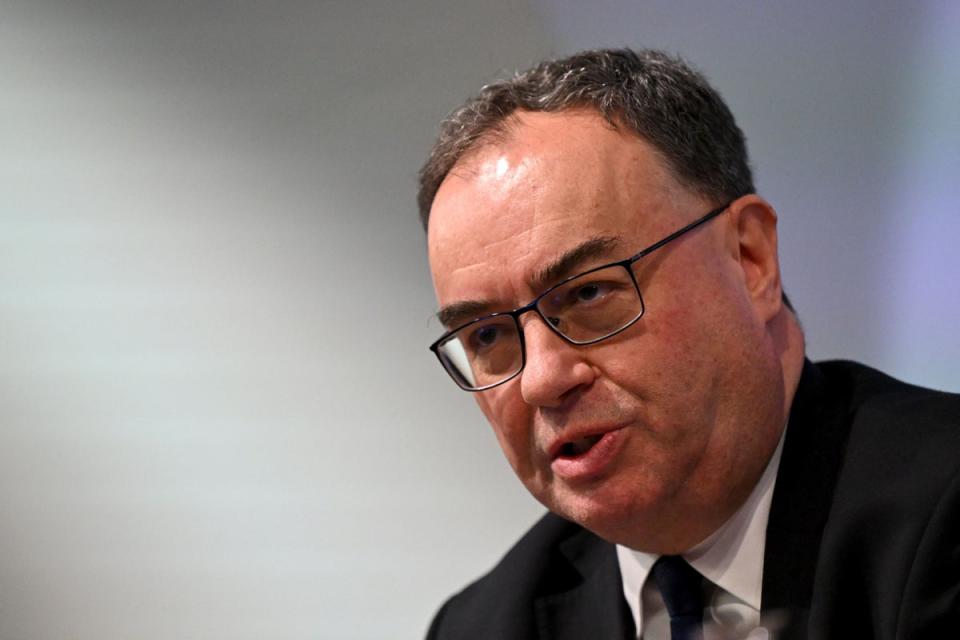Inflation will be below-target by mid-2026, Bank of England says

Inflation will be below the key 2% target in 2026 and 2027 - unless interest rate cuts are more aggressive than expected - the Bank of England revealed today.
The Bank’s Monetary Policy Committee voted 7-2 to hold interest rates at the 14-year high of 5.25% today, in what markets hope is the final hold before it starts cutting. Alongside the decision, it published its latest forecasts for the UK economy.
The Bank previously believed that inflation would briefly fall back to target briefly this quarter, only to rise again and remain above target until 2027.
It still sees inflation falling to target this quarter, helped by the lower energy price cap and high comparatives for food prices, but the longer-term forecast now suggests that inflation is less embedded. The Bank tends to look more closely at longer-term signs of inflation rather than the short-term picture.
Inflation is now set to be 1.6% by the end of 2026, the Bank thinks. In its February Monetary Policy Report, the Bank saw inflation at 2.0% at that point.
The Bank also upgraded growth prospects for the UK. Kathleen Brooks, research director at XTB, called the combined higher growth figures and lower inflation figures a ‘goldilocks report’.“As expected, growth was revised higher, while inflation was revised sharply lower for the UK. The BOE no longer sees UK inflation with a 3% handle in its forecast period, which is out to 2027. This is a big shift for the UK, and suggests, that the UK’s inflation problem is now under control, and price pressures have slowed sharply even though the economy is near full employment. While the BOE thinks that it is too soon to declare victory over the cost-of-living crisis, the BOE also thinks that the key indicators of inflation persistence are moderating, which is helping the overall disinflation trend to continue.
“The BOE’s forecasts for the unemployment rate were also revised lower, which could mean that the UK economy will get its very own soft landing.”
The Bank of England’s forecasts are based on market expectations of interest rates before its meeting. Markets were pricing in two cuts before the end of the year, and interest rates remaining high compared to 2010s levels, remaining above 3% into 2027.
Given the Bank thinks inflation will be below its target if it follows that path, it may be inclined to be more aggressive in its cuts than markets projected.

 Yahoo Finance
Yahoo Finance 